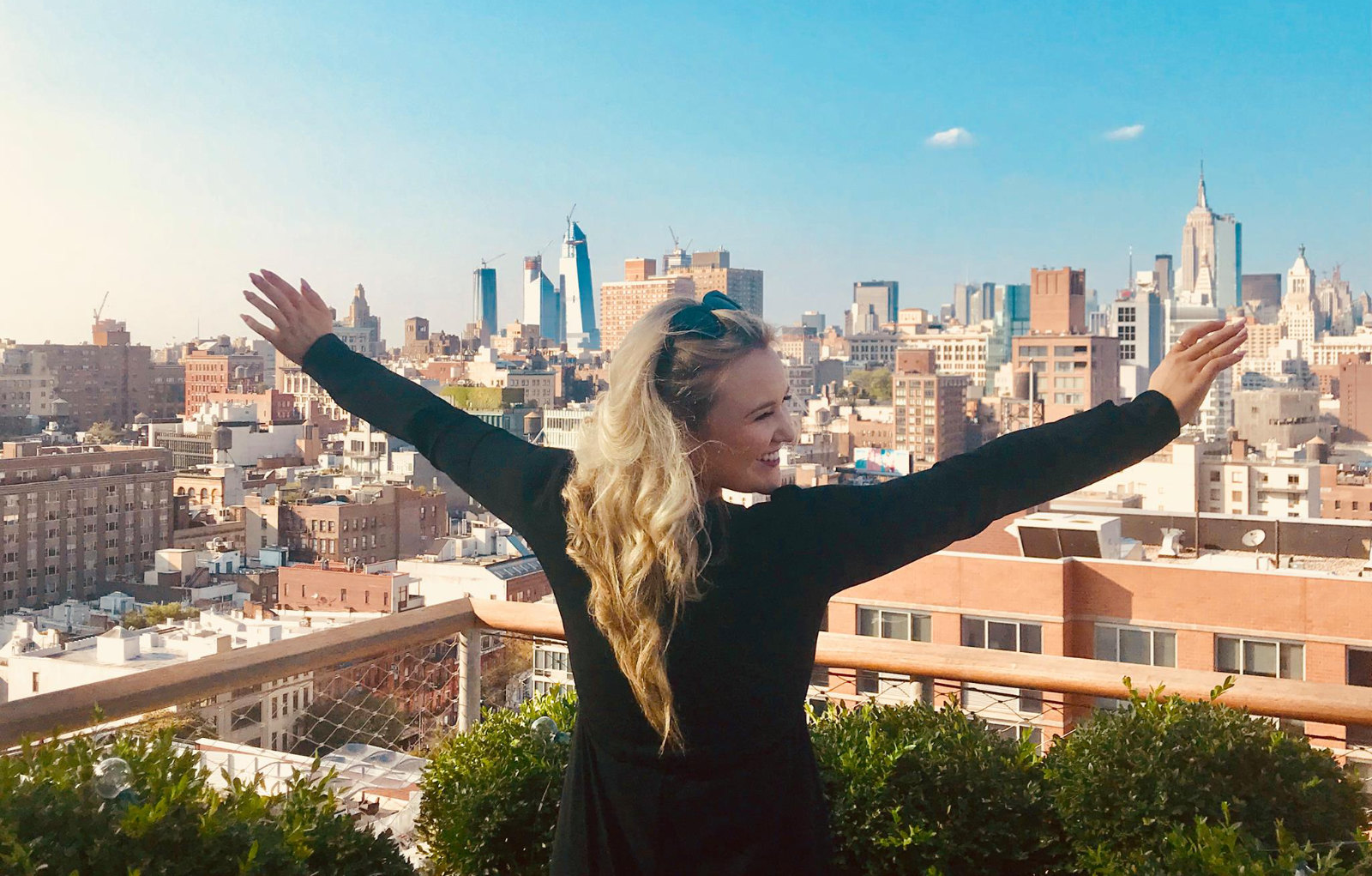
BEAUTY How to win followers and influence people: marketing executive and podcast host Stephanie O’Quigley gives Jody Miller some no-nonsense advice for aspiring brands and influencers
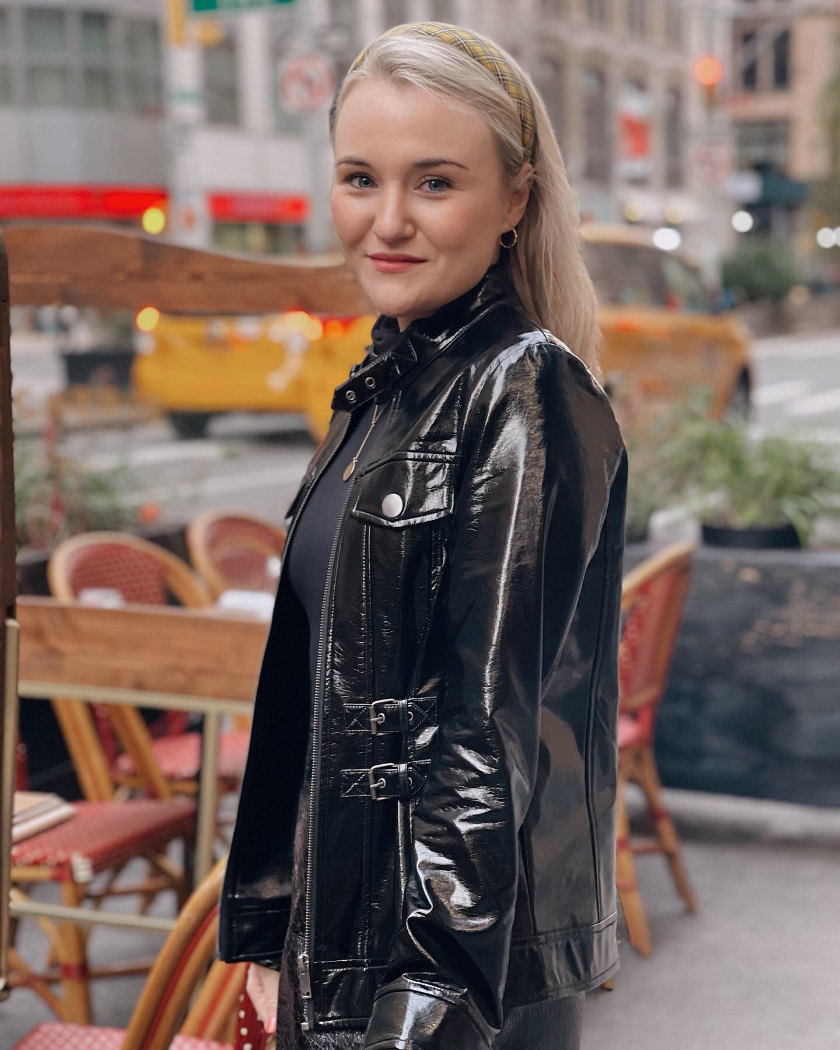
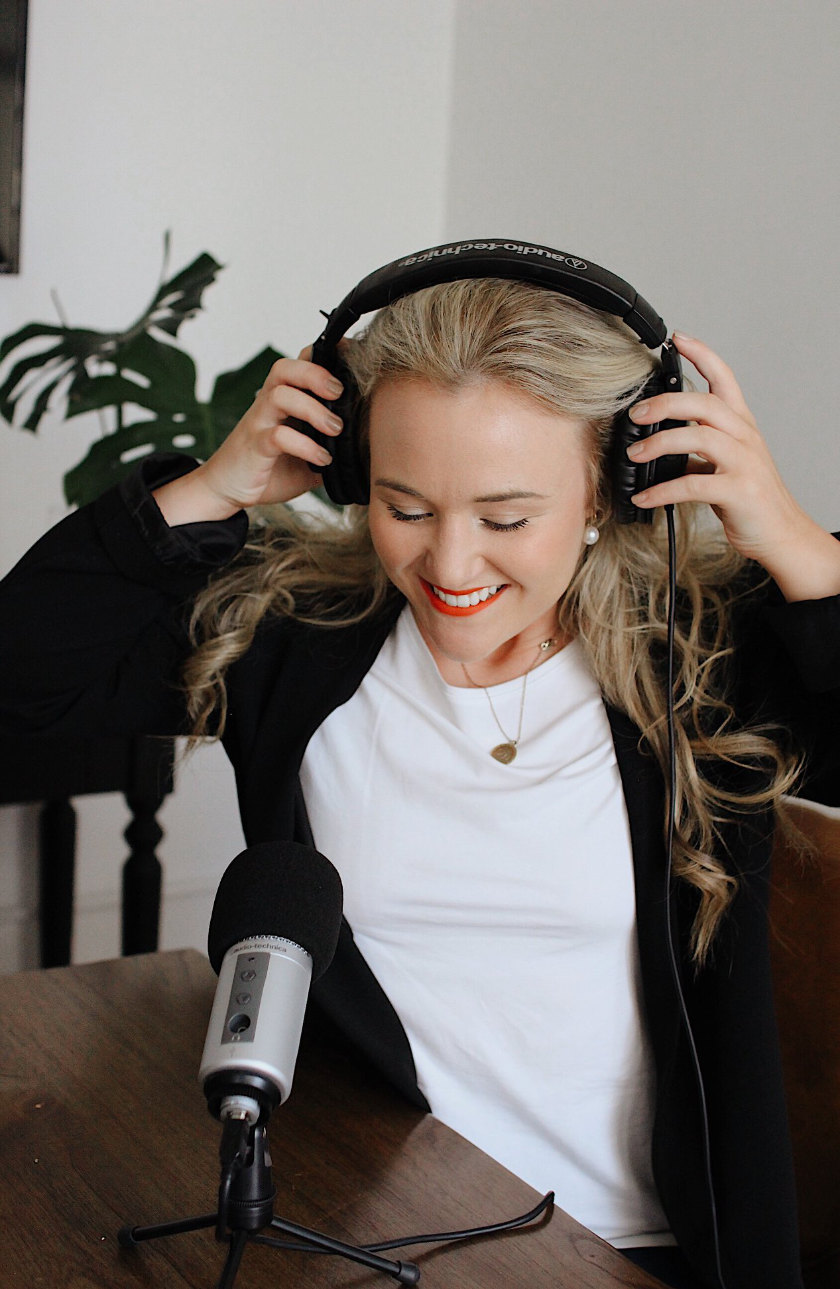
I think most of us would be fibbing just a little if we didn’t admit to entertaining the thought of being an influencer, or at least be curious if we have what it takes. Dismiss it as a quixotic daydream if you will, but what if you have some real ambition, but just don’t know what to do or where to start?
Meet our influencer fairy godmother: she’s an international public relations executive director, podcast host and beauty influencer willing to give you solid advice of the why and how brands and influencers make it to the top, transforming your daydream into a dream job.
Meet Stephanie O’Quigley: a 30-something millennial who started from humble beginnings in Ireland to a high-powered marketing career in New York working with top established and emerging beauty brands. She hosts her own lifestyle podcast, reviews beauty products and follows other influencers on social media in her spare time. Her advice is not only honest and straightforward, it’s likely not what you would expect, either. Hint: you may be pleasantly surprised or acknowledge it’s not your cup of tea after all.
So who is this marvellous Ms O’Quigley? While a communications major at university in Dublin, O’Quigley took life by the reins when she had the chance to relocate to New York. Yes, it was scary, but what’s a bright-eyed early twenty-something to do? While completing her studies in the hope of becoming a magazine editor, the self-described ‘un-glamourous’ O’Quigley had a particular interest in beauty products. While most of her classmates were headed for careers in more traditional avenues of advertising, O’Quigley started a beauty blog when it was still a thing on Facebook. Believing her peers would not relate to her interest in beauty or that she did not fit the image of the stereotypical beauty blogger, O’Quigley kept her side hustle on the down-low.
After plugging away clandestinely on her blog for months without earning a dime, O’Quigley started to receive event invitations and product samples from companies who wanted her feedback. One of the invites was a lunch event for a successful brand of self-tanning products. She chatted with the company founder over lunch and walked home with a sweet gift bag of products and an all-around lovely afternoon. Now the fairy-tale moment: impressed with O’Quigley’s career aspirations and education, the company founder gives her a ring to ask O’Quigley if she would be interested in an intern position. Only happens in movies, right? Nope—it happened to O’Quigley and our Irish lass was on her way.
With O’Quigley’s guidance, marketing know-how and intuition, the self-tan brand grew and expanded beyond the UK market into the USA and Australia. O’Quigley found herself jetting around the globe to beauty conventions and meeting celebrities to represent the brand. They even sealed a deal to tan performers at the Oscars.
Having taken New York and her career by the reigns, O’Quigley is now a bona fide beauty industry insider as a PR executive director and podcast. She still maintains her blog painted with the fresh palette of a wide-eyed Irish girl in the Big Apple. We interviewed O’Quigley from her NYC apartment about what makes a brand and influencer stand out, what influencers she follows, and the podcast that keeps her in the know about the hottest lifestyle trends.
What attracted you most about beauty?
The newness of the beauty space. The consistent development, scientific research, exciting new campaigns and fresh ways to look at things. The fast pace and how it can transform a person. I think that spoke to me more than anything else. I wasn’t interested in traditional advertising. Anything bright and fun is going to catch my attention. You don’t know what is going to happen next.
Describe the anxiety and trepidation you felt when you started your blog.
I was not the cool kid in school or college. I remember walking into class after I launched my blog and posted it on Facebook and feeling so embarrassed to have put myself out there into the world to say this is what I want to pursue. This is where I want to take my career. It felt very humiliating to put myself out there.
From your executive experience, why are some beauty brands so successful while others seem to get lost?
The beauty industry is very different now than when I started. But I think, and this is a little bit biased because I am the publicist, the brands that end up taking off are not always the ones that have the best ingredients or the best æsthetic or the best models in their campaign. They’re the brands that stay relevant. They’re doing new campaigns with a celebrity or influencer, or showing before and afters and blowing it up with a massive TikTok campaign, or getting into micro-influencers. Show the consumer how your product works and performs, highlighting that with social media campaigns and making it relevant. There are always trends that come and go. The beauty industry is known for trends, but they eventually fade.
What makes a product or campaign relevant?
Transparency. Get rid of the filters and the airbrush stuff and get real. That would be my advice to a brand right now—just take down all the pretty backgrounds and the crazy photo shoots and show the consumer some realness. Stay relevant in any way you can. Try to make news out of your brand. Also how you use influencers to your advantage.
What about more established brands that developed pre-social media?
I’ve worked with a lot of brands in that category. They have an audience that has grown with them and might now be an older consumer, not necessarily Gen Z or even millennials. I think a brand like that needs to stay relevant to its strongest audience. You can spend some time on TikTok trying to reach the consumer, but realistically, there’s no point in trying to flip-flop your whole consumer base to the other consumer. That’s a really hard flip to make. Focus on your current consumer base and stay relevant to them, such as a podcast sponsorship or midday TV, or just ditching the TikTok side of things.
What is trending with Gen Z? What value is important to them?
They value transparency. When a new brand comes on the market or a brand tries to change its image or flip its whole strategy, the younger consumer is sceptical because they’re so educated. I think it’s interesting that an older consumer won’t buy the trendy stuff, but the younger consumer will buy the stuff that’s been around for 25 years if they see that it works.
What does it take to be a successful influencer?
There are no parameters. There’s no consistency in terms of being pretty or being a certain way or being rich or poor. The more you show up is the best recipe for success. I watch everything from a woman on YouTube who has 14 children—she makes videos about feeding her 14 kids and how she runs her home. It’s far removed from my life or anything that I aspired to be. But it’s so interesting, and she has like a million followers. And then I watch somebody who lives in the West Village and wearing these fabulous clothes. She seems to have this picture-perfect life, and it’s very pretty and all that. I think it’s just somebody who shows up. One thing I could say is that being an influencer is best suited for somebody who doesn’t have a full-time job and who has a niche. It demands more out of you than somebody in a full-time role can give. So if you have a niche doing meal prep, or reviewing Broadway shows or lipsticks, or whatever it might be, the tighter the niche the better. The more you stay within your niche, the more viewers come back. It’s comforting and consistent for those that follow you.
You have a podcast, The Wall with Stephanie O’Quigley. How did that come about and what is the focus? I started the podcast in 2019, and thus far I have about 50,000 downloads. It’s a small podcast because I work full-time as a PR director. I love having conversations with people about self-care and development, like mental health, fitness and anything to do with wellness of the mind and body. So it was kind of a passion project for me, but I also needed an outlet outside of the blog I started in 2012. The blog was like my baby, but it has kind of phased out because people just aren’t reading long-form content any more. So when podcasts became more popular, I wanted this to be my new outlet to create content. I love to be able to create something that offers the listener something tangible. I’ve met so many amazing people and have learned so much. It’s not something that I need to pursue full-time, but it’s a great way to keep up with the industry and with the people within it. I’ve been very fortunate that people have given me their time over the last few years and shared conversations with me.
Based on your conversations with podcast guests and research, what’s trending in wellness right now?
I think the “anti-hustle”. It makes sense coming out of a pandemic. People realize their job was not a right fit for them or they don’t need to work 18 hours a day. They want to exercise and they want to eat healthier. So I think people are pivoting towards an anti-hustle culture and the bad habits that people did not realize were burning them out. I think people are really checking themselves and becoming more aware. Wellness was always a trend, but people are looking at it in terms of slowing down—making exercise and family time a priority. And trying to work smarter. It’s just not cool any more to say that you’re working overtime or you have a side hustle. It’s an interesting shift.
Jody Miller is a correspondent for Lucire. This article also appears in Lucire Rouge.
Related articles hand-picked by our editors
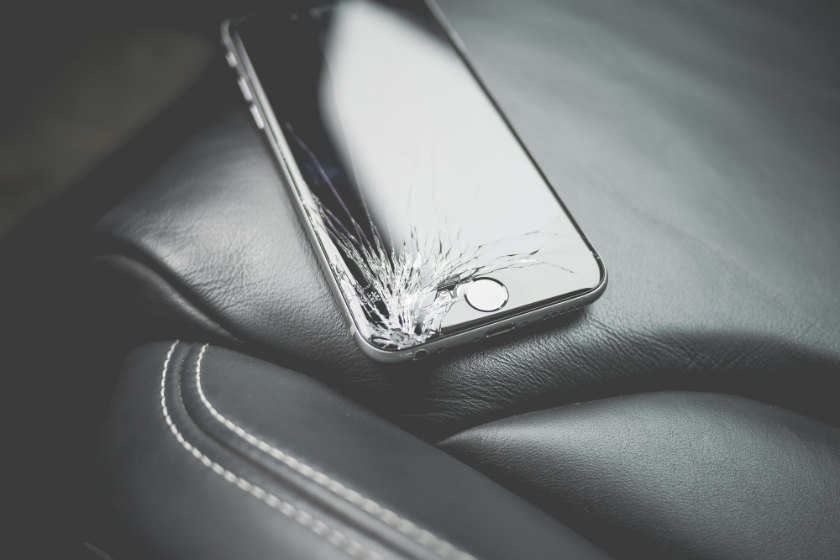
The fall of the influencer
Lucire predicted the rise of the social influencer many years ago. But now that such ideas have mainstreamed, we’re less optimistic about their staying power
by Jack Yan and Portia Gascoigne
From issue 38 of Lucire
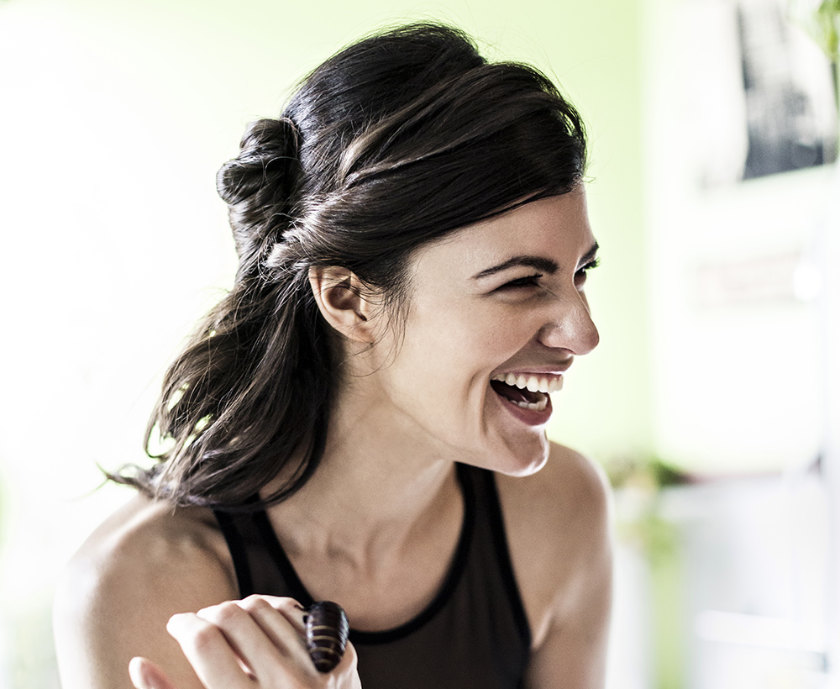
Social media and the “influencers”: not the evolution you might have expected
Jack Yan asks: in an age where so many are trying to be an “influencer”, then wouldn’t we expect the tide to turn against the shallow, fleeting posters in favour of something deeper and more considered?
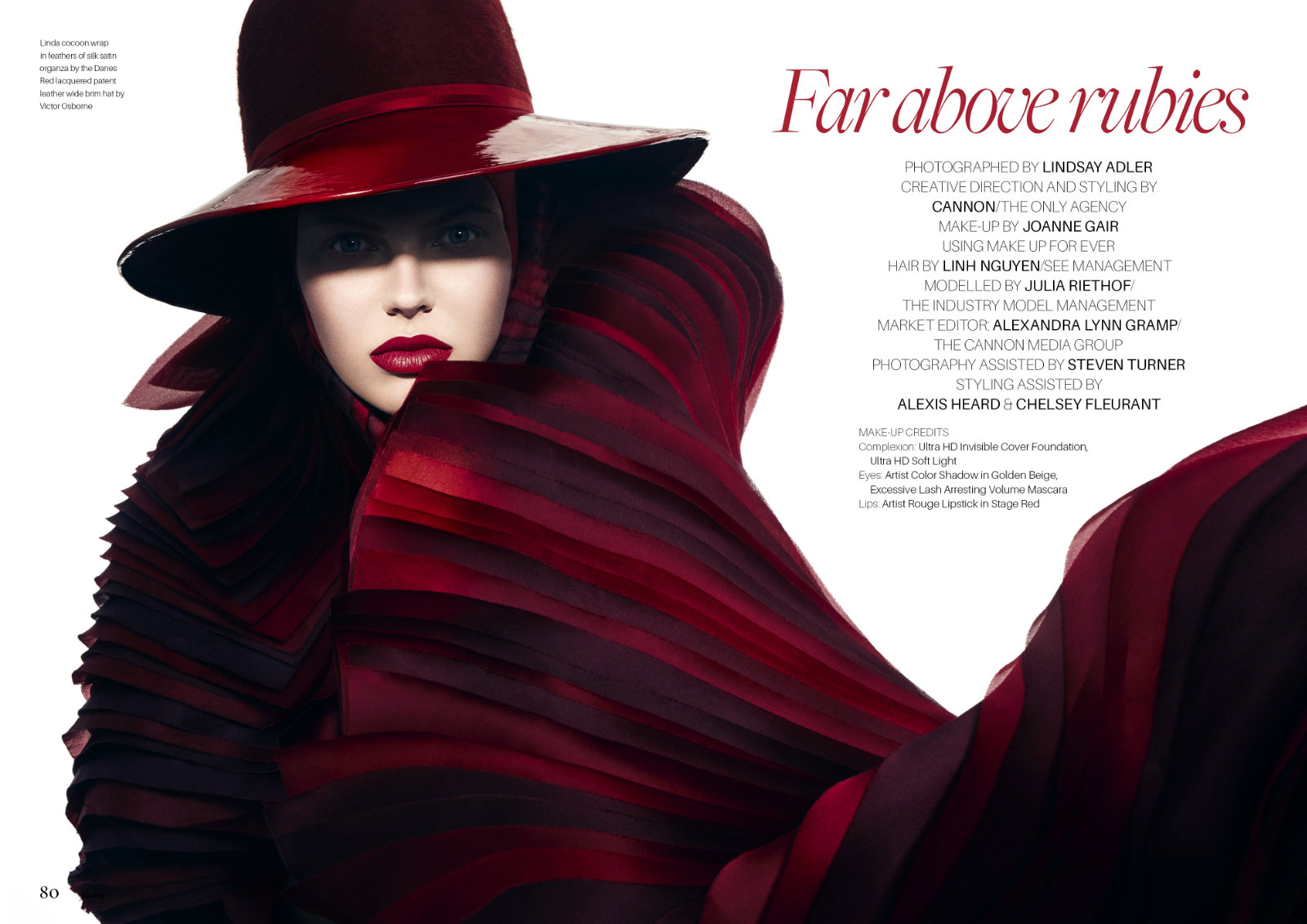
Instagram won’t replace the fashion magazine
Social media may fill some niches that certain magazines and TV programmes used to, but they are lacking in other areas, writes Lucire publisher Jack Yan